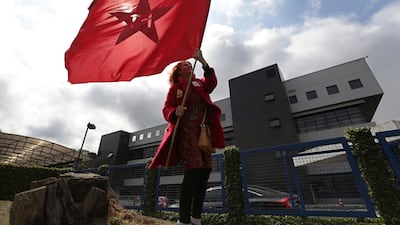Brazil's imprisoned leader Luiz Inacio Lula da Silva has stepped aside and endorsed his running mate Fernando Haddad as his party's presidential candidate after electoral officials barred the veteran leftist from running in the October election.
The endorsement came just before the end of a September 11 deadline for the Workers' Party to name a replacement for Lula, who was jailed for 12 yearsfor corruption and money laundering. According to the country's "clean slate" law, people with a criminal conviction upheld on appeal cannot run for elected office.
“Brazil’s judiciary has taken the right of the people to choose freely,” Lula said, in a letter from his cell that was read out by Luiz Eduardo Greenhalgh, a founding member of the Workers’ Party.
“They’re censoring me like they did during the military dictatorship,” Lula wrote, asking his supporters to vote for Mr Haddad instead.
_______________
Read more:
Prison and hospital: primary battle grounds in Brazil's election race
Brazil's leading presidential candidate stabbed
_______________
Even before officially picking up the baton from Lula, Mr Haddad gained substantial voter support in the Datafolha opinion poll published on Monday.
The 55-year-old former Sao Paulo mayor is now in a statistical tie for the second place with three other contenders – fellow leftist candidate Ciro Gomes, environmentalist Marina Silva and former Sao Paulo governor Geraldo Alckmin.
Running first is former army captain Jair Bolsonaro, who modestly extended his lead after being stabbed and nearly killed at a rally last week.
Since his indictment over two years ago, the still popular Lula has denounced a conspiracy to prevent his return to power, with his supporters blasting the message on streets, to courts and in media at home and abroad.
Investors are concerned about a return to heavy government intervention in the economy, with the Workers’ Party proposing to tax banks that charge high interest rates, to introduce capital controls and force public banks to offer cheap credit.
Investors have dumped Brazilian assets as the prospects of market-friendly candidates have dimmed ahead of October 7 vote. The real has lost per cent so far this year.

